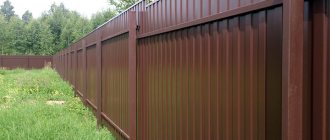A dacha, like other real estate properties, has a number of features and nuances when purchased. By knowing them in advance, you can avoid awkward situations with the seller or subsequent litigation.
It is necessary to be extremely attentive and careful in everything, from reviewing documents to the final stages of the transaction. Read in this article: what to look for when buying a summer house and what documents are needed?
Dear readers!
Our articles talk about typical ways to resolve legal issues, but each case is unique. If you want to find out how to solve your particular problem, please use the online consultant form on the right or call. It's fast and free!
What documents should you look for when buying a summer house?
The quality of the plot and the real estate on it must fully comply with the documents that the seller must have:
- Document of the copyright holder - any document according to which the dacha was transferred from the previous owner to the seller (for example, a purchase and sale agreement);
- Cadastral passport for a summer cottage plot and building;
- Extract from Rosreestr;
- A certificate indicating full repayment of the debt or timely payment of utilities, as well as contributions to the gardening partnership (cooperative).
Provided that the dacha was purchased by the seller during marriage and is joint property with the second spouse, it is necessary to obtain his written permission to sell.
Be sure to check with the seller about the land title.
Buying a dacha without a boundary
If the right to the plot is not formalized, then the cadastral passport will not have clear boundaries. It is this point that will not allow the land to be fenced off in the future.
First, neighbors will dispute their territory. Secondly, the court may not recognize the selected fence as valid boundaries , so the fence will have to be removed.
In addition, without the right to a plot any building , even if it is a full-fledged house, can be considered illegally erected . According to a court decision, it will have to be demolished, and the site itself may become the property of the cooperative.
Buying a summer cottage without a boundary is not recommended, even if the seller is attracted by an artificially low price.
Dacha for mother capital
to purchase a dacha using maternity capital in its entirety or with an additional payment, but with certain nuances. The conditions for maternity capital clearly state what it can be spent on.
In addition to the child’s education and the mother’s pension, it can be used to purchase housing or improve living conditions. Housing must comply with living standards - it must not be dilapidated and have all communications.
In this article you will learn what needs to be done to buy a dacha using maternity capital.
If a house on a summer cottage is equipped with a water supply (well), light is supplied and there is a sewerage system (drainage hole), and is also suitable for living in the winter, then it is quite possible to buy it.
Payment is made by bank transfer through the pension fund. The funds are transferred to the seller's bank account.
When purchasing with the help of maternity capital - both for the full price and with an additional payment - each family member becomes the owner of the land and housing in an equal share, including children.
The funds are transferred to the seller’s account by the pension fund within two months from the date of the transaction. The person must know about this and give his consent to wait for the money to arrive in the account. This clause can also be included in the purchase and sale agreement.
Maternity capital can be used not only for non-cash payments. Read about how and in what cases it can be cashed out in this article.
Warn the seller that funds from the pension fund will arrive in his account within 2 months.
Assess the area
We are not talking about the landscape that surrounds your future country house, but about the variety of terrain in general. Let's say your future dacha is located in a village. It is in the village, not in the village. Think about it for a second: the population in the village is already minimal, and in winter there are only two or three people at all. We, of course, exaggerate the problem, but still. In dacha communities, the territory is usually guarded year-round. Never in the village. Consequently, despite all the picturesqueness of the area, you will have to solve an additional issue related to the safety of your property. After all, a dacha is a seasonal home. And most summer residents prefer to live in city apartments during the cold season. Consequently, the house will remain defenseless and unattended.
Buying a summer house by proxy
In 2021, this form of transaction execution has not changed its parameters. The notarized application is signed by both parties . This document indicates the main points of the transfer of the plot, including the amount.
It is also recommended to check all the necessary documents, especially confirming the ownership of the plot and house. Otherwise, after some time the legal owner of the dacha may appear, and the newly-minted buyer will be left out of business.
Such fraudulent schemes are very common, so the seller must be the direct owner (not brother, not wife, not children).
A sample sales document by proxy can be downloaded here.
After purchasing a dacha, you need to register it as your property. How to do this - read the link.
The legislative framework
The law regulates the procedure for buying and selling a summer cottage. All the main points are set out in the Civil Code of the Russian Federation:
- The parties must formalize the agreement in accordance with the requirements set out in Art. 549-557 Civil Code of the Russian Federation.
- The procedure for transferring ownership rights is regulated by Art. 218 of the Civil Code of the Russian Federation.
- The procedure for carrying out settlements between the parties must be carried out in accordance with clause 5 of Art. 488 Civil Code of the Russian Federation.
Also, some rules regarding transactions with such real estate are contained in the Land Code of the Russian Federation.
Purchasing a summer house without documents
In fact, such an acquisition is simply impossible and illegal . If a person is allegedly selling a dacha, but for various reasons cannot provide the relevant documents for the sale (or provides copies of documents), then this is obviously a fraudster.
Any plot and buildings on it must have appropriate documents. If the seller does not provide them, citing various reasons, then something is wrong with the site.
Either the documents are being re-registered, or the seller is simply not the owner and has no direct connection to this site.
In any case, you should wait and look at the original documents. Or refuse the purchase.
You also need to be careful when showing copies of the title deed. Simply put, these documents may be from the previous owner.
When completing a transaction based on copies, after some time the real owner may appear with the original document. And the law will be on his side - he did not sell anything to anyone.
Plot with unregistered building
If a summer cottage plot is purchased with unregistered buildings , they may subsequently be recognized as illegally erected . On this basis, the court may decide to demolish such structures.
Therefore, the first thing you need to do is make sure that all premises are registered and take measures to register the property as quickly as possible.
Without privatization
Privatization is not required if the dacha was built with the personal money of the owner of the plot. It is necessary to privatize when ownership is formalized.
Do not buy plots with unregistered houses - the court will declare them illegal.
Dacha with debts
You should carefully look at receipts and utility bills, otherwise after the purchase you will have to pay all the debts of the previous owner .
To avoid problems, the contract when making a transaction must contain a clause stating that the seller undertakes to pay all debts. Even if he subsequently does not do this, the new owner has the right to refuse to pay other people's debts.
Buying from a garden book
This option is impossible, because a garden book is not a document of ownership of a plot or dacha. It only confirms that the owner of the dacha is a member of a gardening partnership.
Risks associated with the purchase
The main risks are considered to be the inattention of the buyer (unscrupulousness of the seller) if a dacha is purchased with debts or with an incomplete set of documents. In such cases, you need to take a sober look at the item you are purchasing and its price. Consulting a lawyer or realtor will still not be superfluous.
Risks also include fraudulent actions through which unscrupulous citizens try to make money from the sale of someone else’s dacha.
In these cases, there will always be problems with documents - they are not there or copies are provided. You need to immediately refuse the purchase, otherwise you may be left without money and without a dacha.
Beware of scammers and check all documents carefully.
Necessary documents for the transaction
- A previous document confirming the seller's ownership of the plot and house.
- Cadastral passport.
- Written consent of the second spouse for the sale (notarized). You can download it here.
- Power of attorney. Required if purchasing through a representative.
Paying taxes on a transaction
By purchasing real estate, the new owner undertakes to pay taxes on the land and home ownership. The tax amount is calculated based on the cadastral value of the acquired property. If the owner does not agree with it, then he has the right to appeal to the court or a special commission to challenge it.
In certain situations, the seller has obligations to pay income tax:
- If the land and house are acquired before the end of 2021 and are sold less than 3 years after receiving title.
- If real estate objects were acquired after 2021 and the period of their ownership does not exceed 5 years (except for cases where the right of ownership arose as a result of inheritance, donation, privatization, or the conclusion of a life annuity agreement).
- If the transaction value exceeds a million rubles.
In the event of an obligation to pay tax, the seller can issue a property deduction in an amount not exceeding 1 million rubles. The tax is calculated from the amount of income received as a result of the transaction.
That is, the cost of acquiring it from the previous owner and the expenses incurred (if evidence confirming them has been preserved) should be subtracted from the sale price of the house.
The buyer can also take advantage of the property deduction. This right appears after the seller has transferred the entire amount provided for under the contract. The maximum amount with which you can receive a deduction reaches 2 million rubles .
Time to give money
This point can also be stated in the purchase and sale agreement. If the buyer gives a deposit, the seller is obliged to sell the dacha only to him, otherwise the deposit is returned in full.
If the deposit was given by the buyer, but later he changed his mind about purchasing the dacha, then the seller has the right not to return the deposit.
It is advisable to place the amount needed to purchase a summer house in a safe deposit box. At the same time, stipulate in the contract such conditions that the seller receives the amount from the bank only when the new owner formalizes ownership of the dacha with a plot. This approach eliminates any fraud that could be planned by scammers.
When buying a summer house you need to be careful at every stage. Even after the transaction is completed, when you can calmly exhale and say “now it’s mine,” it’s too early to relax.
To avoid any unforeseen incidents, care should be taken in everything, from inspecting the site and the house itself to checking each document for authenticity. Hiring an experienced realtor would be an ideal option to help with paperwork.
The main reason for fraud when buying real estate is the buyer’s carelessness and lack of legal literacy. To avoid falling for scammers, watch this video:
If the transaction needs to be canceled after registration
Terminating the contractual relationship after registration is completed is much more difficult and will take a lot of time. This is allowed to be done both by mutual will and on the initiative of one participant.
If both parties agree, then it is enough to draw up and sign a “reverse” agreement. In it, the seller will already be the buyer and vice versa. Based on this agreement, a new entry is made in the register of owners, and the right of ownership is returned to the former owner.
If one of the participants does not agree, it is more difficult to break the contractual relationship. The initiator can only hope for judicial protection. Litigation can last from several weeks to several months or years. Initially, differences should be resolved through negotiations. The initiator can send a registered letter to the counterparty with an offer to settle everything without trial. If there is no response within a month, you can begin filing a claim.










